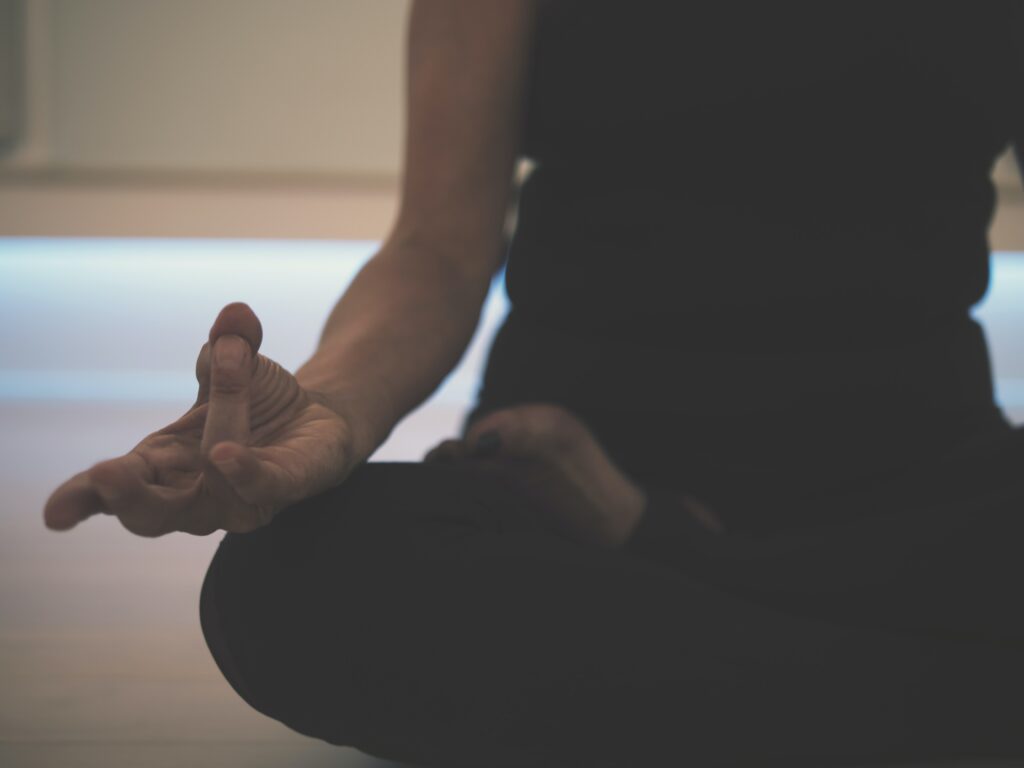
Disclaimer: This post may contain affiliate links. As an Amazon Associate, we earn from qualifying purchases.
Imagine a world where you have the power to heal yourself every day. A world where you can tap into your own inner strength and nurture your mind, body, and soul. Well, with the revolutionary product “How Can I Heal Myself Everyday?”, this dream becomes a reality. Whether you’re dealing with physical ailments or seeking emotional balance, this product provides you with a comprehensive guide on self-healing techniques and practices. Say goodbye to relying solely on external solutions – it’s time to unleash the power within you and embark on a journey of everyday healing.
Maintaining a Healthy Lifestyle
Eating a Balanced Diet
Maintaining a healthy lifestyle begins with eating a balanced diet. Your body needs a variety of nutrients to function optimally, so it’s important to incorporate a diverse range of foods into your meals. Aim to consume a variety of fruits, vegetables, whole grains, lean proteins, and healthy fats. Avoid processed foods and sugary drinks as much as possible, as they can lead to weight gain, inflammation, and other health issues. Remember, food is fuel for your body, so choose wisely and prioritize nourishing your body with nutrient-dense foods.
Engaging in Regular Physical Activity
Physical activity is not only essential for maintaining a healthy weight but also promotes overall well-being. Regular exercise can help reduce the risk of chronic diseases, boost mood, and improve overall fitness levels. Find activities that you enjoy and make them a regular part of your routine. Whether it’s going for a brisk walk, hitting the gym, or practicing yoga, find what works for you and commit to it. Aim for at least 150 minutes of moderate-intensity exercise or 75 minutes of vigorous-intensity exercise per week, along with strength training exercises twice a week to keep your body strong and healthy.
Getting Adequate Sleep
Sleep plays a vital role in maintaining good physical and mental health. Aim for 7-9 hours of quality sleep each night to allow your body to repair and recharge. Establish a bedtime routine that promotes relaxation, such as avoiding caffeine and electronic devices before bed, creating a comfortable sleep environment, and practicing relaxation techniques like deep breathing or meditation. Prioritizing sleep will not only improve your energy levels, but it will also boost your mood, cognitive function, and overall well-being.
Reducing Stress Levels
High levels of stress can take a toll on both your physical and mental health. It’s important to find healthy ways to manage and reduce stress on a daily basis. Engaging in activities like deep breathing exercises, meditation, yoga, or taking short breaks throughout the day to relax and recharge can help alleviate stress. It’s also crucial to identify and manage sources of stress in your life, whether it’s through setting boundaries, practicing time management, or seeking support from loved ones or professionals. Remember, managing stress is a continuous process, and with regular practice, you’ll find what works best for you.
Nurturing Mental and Emotional Well-being
Practicing Mindfulness
Practicing mindfulness involves being fully present in the moment and observing your thoughts, feelings, and sensations without judgment. It helps cultivate a sense of calm and awareness, allowing you to better manage stress, anxiety, and negative emotions. Incorporating mindfulness into your daily life can be as simple as taking a few minutes each day to focus on your breath, engaging in mindful eating, or practicing mindful walking. By practicing mindfulness regularly, you’ll develop a greater sense of self-awareness and become more attuned to your mental and emotional well-being.
Cultivating Positive Relationships
Positive relationships are a cornerstone of mental and emotional well-being. Surrounding yourself with supportive and caring individuals can provide a sense of belonging, comfort, and understanding. Take the time to nurture and cultivate meaningful connections with loved ones, friends, and even colleagues. Engage in open and honest communication, actively listen, and offer support to others. By investing in positive relationships, you’ll create a strong support system and build resilience during challenging times.
Engaging in Self-reflection and Self-care
Self-reflection and self-care are essential for nurturing your mental and emotional well-being. Take regular moments of introspection to check in with yourself and assess your feelings, thoughts, and emotions. This can be done through journaling, meditation, or simply spending time alone in quiet reflection. Self-care is about prioritizing your physical, mental, and emotional needs. It can be as simple as taking a relaxing bath, reading a book, or engaging in activities that bring you joy. Remember, taking care of yourself is not selfish but rather necessary for maintaining your overall well-being.

This image is property of images.unsplash.com.
Developing Supportive Habits
Establishing a Daily Self-care Routine
Establishing a daily self-care routine is crucial for maintaining a healthy lifestyle. Dedicate time each day to engage in activities that promote your well-being. This can include self-reflection, physical activity, relaxation techniques, or engaging in hobbies that you enjoy. By making self-care a priority, you’ll enhance your overall mental, emotional, and physical health.
Setting Realistic Goals
Setting realistic goals is an important aspect of personal growth and overall well-being. When setting goals, consider your strengths, limitations, and interests. Make sure your goals are specific, measurable, achievable, relevant, and time-bound (SMART). Break them down into smaller, manageable steps and celebrate each milestone along the way. Setting realistic goals not only provides a sense of purpose but also enhances motivation and self-confidence.
Maintaining a Gratitude Practice
Practicing gratitude has been shown to have numerous benefits for mental and emotional well-being. Taking a few moments each day to reflect on the things you’re grateful for can shift your focus to the positive aspects of your life. Consider keeping a gratitude journal where you write down three things you’re grateful for each day. Alternatively, you can practice gratitude by expressing appreciation to others or simply taking a moment to acknowledge and savor the small joys in life. Cultivating a gratitude practice helps foster a positive mindset and promotes overall well-being.
Exploring Therapeutic Techniques
Seeking Professional Help
Sometimes, we may need additional support to navigate through challenging times. Seeking professional help from a therapist, counselor, or psychologist can provide valuable guidance and support. A mental health professional can help you develop coping strategies, manage stress, and work through emotional and personal challenges. Don’t hesitate to reach out for professional help when needed – it’s a sign of strength and a proactive step towards healing and self-improvement.
Engaging in Talk Therapy
Talk therapy, also known as psychotherapy or counseling, is a widely used therapeutic technique aimed at improving mental and emotional well-being. During talk therapy sessions, you’ll have the opportunity to explore your thoughts, feelings, and experiences in a safe and supportive environment. A skilled therapist will guide you through various therapeutic approaches to address specific issues and help you gain insight, develop coping mechanisms, and facilitate personal growth.
Trying Alternative Therapies
In addition to conventional talk therapy, alternative therapies can also be beneficial for healing and well-being. Techniques such as art therapy, music therapy, dance/movement therapy, or even animal-assisted therapy can provide different avenues for self-expression, stress reduction, and emotional healing. These therapies can be especially helpful for individuals who may find it challenging to verbalize their emotions or prefer non-traditional approaches to healing.
This image is property of images.unsplash.com.
Embracing Physical Healing Methods
Using Natural Remedies
Natural remedies can complement traditional medical treatments and support overall healing. Consult with a healthcare professional or naturopath to explore safe and effective natural remedies that align with your specific needs. Some natural remedies, such as herbal supplements, essential oils, or herbal teas, can promote relaxation, improve sleep, reduce anxiety, and support physical healing. However, it’s important to remember that natural remedies should be used with caution and under professional guidance.
Incorporating Exercise into Healing
Exercise is not only beneficial for physical health, but it can also promote healing and well-being. Engaging in moderate-intensity exercise, such as walking, swimming, or cycling, can improve cardiovascular health, boost mood, and increase overall energy levels. Furthermore, exercise promotes the release of endorphins, which are natural mood-boosting chemicals in the brain. Start with activities that are appropriate for your current fitness level and gradually increase intensity as you progress.
Exploring Energy Healing
Energy healing modalities, such as Reiki, acupuncture, or qigong, focus on balancing and restoring the body’s energy flow. These practices are based on the belief that energy imbalances can lead to physical, mental, and emotional health issues. Through gentle touch, pressure, and manipulation of energy pathways, energy healers aim to remove blockages, stimulate healing, and promote overall well-being. If you’re interested in exploring energy healing, consult with a qualified practitioner to ensure safe and effective treatment.
Cultivating a Positive Mindset
Practicing Affirmations and Visualization
Practicing positive affirmations and visualization techniques can help cultivate a positive mindset. Affirmations involve repeating positive statements to yourself, such as “I am capable,” “I am deserving of love and happiness,” or “I am grateful for my accomplishments.” Visualizing your desired outcomes can also help train your brain to focus on positive possibilities. Close your eyes and mentally imagine yourself achieving your goals or visualizing a positive outcome. Regular practice of affirmations and visualization can reprogram your mind to embrace positivity and attract positive experiences into your life.
Fostering Gratitude and Optimism
Gratitude and optimism are powerful attitudes that can significantly impact your overall well-being. Cultivating a sense of gratitude involves appreciating the present moment and acknowledging the positive aspects of your life, no matter how small. Optimism, on the other hand, involves maintaining a positive outlook and believing in the possibility of positive outcomes. Both gratitude and optimism can be nurtured through daily practices such as expressing gratitude, reframing negative thoughts, and surrounding yourself with positive influences.
Challenging Negative Thoughts
Negative thoughts can hinder personal growth and impact your mental and emotional well-being. It’s essential to challenge negative thoughts and replace them with more positive and empowering ones. Start by identifying negative thought patterns and questioning their validity. Ask yourself if there is evidence to support these thoughts or if there are alternative perspectives. Replace negative self-talk with positive affirmations and focus on your strengths and accomplishments. By challenging negative thoughts, you can create a more positive and empowering mindset.

This image is property of images.unsplash.com.
Connecting with Nature
Spending Time Outdoors
Connecting with nature can be incredibly healing for the mind, body, and spirit. Take the time to spend more time outdoors, whether it’s going for a hike, walking on the beach, or simply sitting in a park. Engaging with nature has been linked to reduced stress, improved mood, and increased feelings of well-being. Take a break from technology and immerse yourself in the natural world, allowing yourself to feel grounded and connected to the natural rhythms of life.
Gardening and Nature Therapy
Gardening provides an opportunity to connect with nature while nurturing and caring for living things. Whether you have a large garden or a small balcony, cultivating plants and flowers can be a rewarding and therapeutic experience. Gardening has been shown to reduce stress, improve mental health, and boost mood. Engaging in nature therapy, which involves formal or informal therapeutic interventions in natural settings, can also provide similar benefits. Consider participating in gardening or nature-based activities to foster a deeper connection with nature and promote overall well-being.
Engaging in Nature-based Activities
Engaging in nature-based activities goes beyond simply spending time outdoors. It involves actively participating in activities that allow you to immerse yourself in nature and experience its healing benefits. This can include activities such as hiking, camping, birdwatching, or nature photography. These activities not only promote physical fitness but also provide an opportunity for relaxation, stress reduction, and reconnecting with the natural world. Get adventurous and explore the diverse array of nature-based activities available in your area.
Nourishing the Spirit
Meditation and Spiritual Practices
Nourishing the spirit involves engaging in practices that promote a sense of inner peace, connectedness, and transcendence. Meditation, mindfulness, and other spiritual practices can help quiet the mind, deepen self-awareness, and foster a sense of unity with something greater than oneself. Dedicate time each day to engage in spiritual practices that resonate with you. This can include guided meditations, prayer, or connecting with your own spiritual beliefs and values.
Exploring Personal Beliefs and Values
Exploring your own personal beliefs and values is an important part of nurturing the spirit. Reflect on what gives your life meaning and purpose. Consider your core values, principles, and philosophies. Engage in activities that align with your beliefs and values, and seek opportunities for personal growth and fulfillment. By developing a deeper understanding of your own spirituality, you’ll be able to live a more authentic and meaningful life.
Connecting with a Higher Power
For those who believe in a higher power, connecting with this spiritual entity can provide solace, guidance, and comfort. This can be achieved through prayer, meditation, or engaging in religious or spiritual rituals. Find ways to connect with your higher power that resonate with you personally. This connection can provide a sense of peace, purpose, and support during challenging times, fostering a stronger spiritual foundation.
Finding Meaning and Purpose
Identifying Personal Passions
Finding meaning and purpose involves identifying your personal passions and engaging in activities that bring you joy and fulfillment. Reflect on the activities that truly light you up and make you feel alive. What are your interests, hobbies, or talents? Pursuing your passions not only brings you happiness but also provides a sense of purpose and fulfillment. It’s never too late to explore new interests or revisit old ones – follow your heart and pursue what truly brings you joy.
Setting and Achieving Meaningful Goals
Achieving meaningful goals is a significant contributor to overall well-being and personal growth. Set goals that align with your values, passions, and aspirations. Make sure these goals are realistic, measurable, and time-bound. Break down larger goals into smaller, manageable steps to stay motivated and track your progress. Celebrate each milestone along the way and allow yourself to experience a sense of accomplishment and fulfillment as you work towards your goals.
Volunteering and Giving Back
Volunteering and giving back to others is a powerful way to find meaning and purpose in your life. It allows you to make a positive impact in the lives of others and contribute to the well-being of your community. Find causes or organizations that resonate with you and offer your time, skills, or resources. By helping others, you’ll not only make a difference but also experience a profound sense of fulfillment and personal growth.
Building Resilience
Developing Coping Strategies
Building resilience involves developing effective coping strategies to navigate life’s challenges and setbacks. Identify healthy coping mechanisms that work for you, such as deep breathing, mindfulness, journaling, or engaging in creative outlets. These strategies can help you manage stress, process emotions, and maintain a positive mindset during difficult times. The more resilient you become, the better equipped you’ll be to face adversity and bounce back stronger.
Building a Supportive Network
Building a support network is crucial for building resilience and maintaining well-being. Foster connections with supportive friends, family members, or community groups. Surround yourself with individuals who uplift and inspire you, and who you can turn to for guidance and support. Sharing your experiences and challenges with trusted individuals can provide a sense of reassurance and validation, reminding you that you’re not alone and that there’s always support available.
Embracing Change and Adaptation
Change is an inevitable part of life, and learning to embrace change and adapt is crucial for building resilience. Instead of resisting or fearing change, cultivate a mindset that views it as an opportunity for growth and personal development. Embrace new challenges, step out of your comfort zone, and approach each situation with an open mind. By cultivating a mindset of adaptability, you’ll be better equipped to navigate life’s uncertainties and thrive in the face of change.
In conclusion, maintaining a healthy and balanced lifestyle involves nurturing both your physical and mental well-being. By incorporating healthy habits into your daily routine, exploring therapeutic techniques, embracing positive mindset practices, and connecting with nature, you can foster healing, resilience, and overall well-being in your life. Remember, self-care is an ongoing practice that requires dedication and self-compassion. Each day provides an opportunity for growth and self-improvement – embrace it and prioritize your well-being.
As an Amazon Associate, we earn from qualifying purchases.















